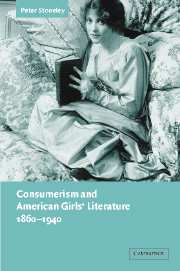3 - Dramas of exclusion
Published online by Cambridge University Press: 22 September 2009
Summary
This chapter explores two bestselling novels that offer an interesting variant fear on the part of a previously dominant class that new money and upward mobility would leave them stranded. Newly conspicuous markers of class may have given pleasure to those on the rise, but they threatened others with exclusion. I focus on Hans Brinker, or The Silver Skates (1865) and Five Little Peppers and How They Grew (1881), because both stage the spectacle of a sudden and apparently irrecoverable loss of status. In the urbanizing social flux of mid-century, people had to ask once more, of themselves and others, where and how did they fit in? How were you to be known and assessed if you were not part of a pre-existent and stable community? Karen Halttunen suggests that this situation produced a culture of performance, whereby people displayed their social values via deportment, speech, fashion, and accomplishments. People were placed by their ability to style themselves. This was a fragile system, for a person might well perform an identity to which he or she had no authentic claim. There was a consequent preoccupation with “confidence men” and “painted ladies,” people who were both more and less than they appeared to be. From another perspective, however, there were those who were losing out in this social and financial flux.
- Type
- Chapter
- Information
- Consumerism and American Girls' Literature, 1860–1940 , pp. 52 - 58Publisher: Cambridge University PressPrint publication year: 2003

